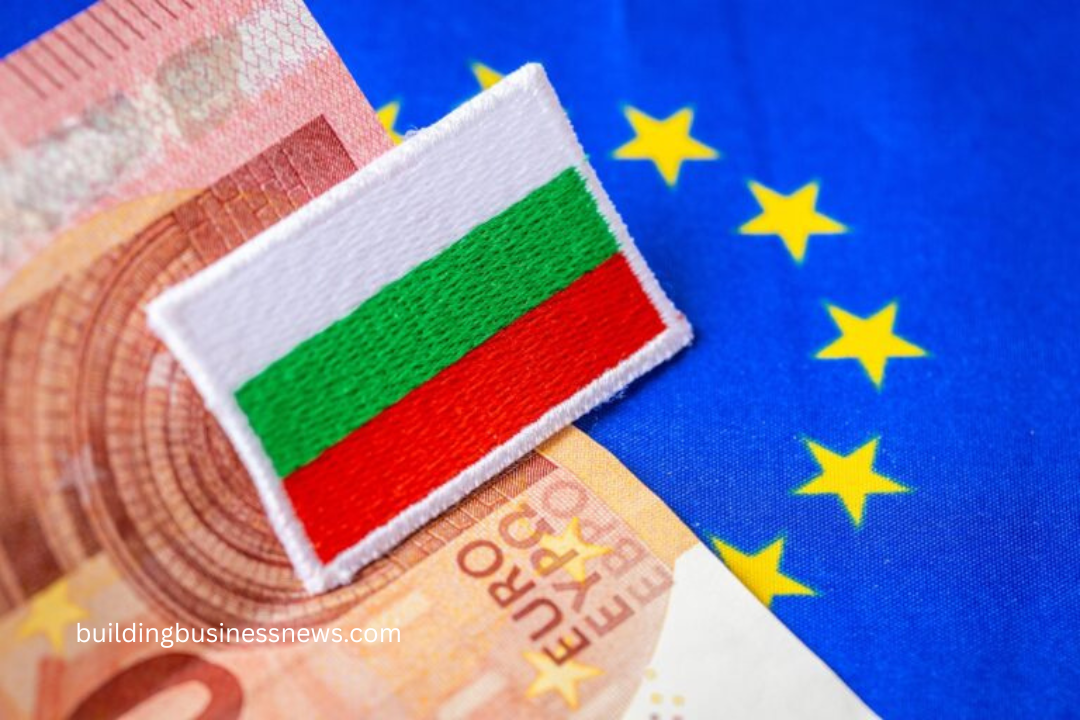Bulgaria is moving steadily toward joining the Euro Zone, aiming to adopt the euro as its official currency in the coming years. The country has already met several preliminary requirements and entered the Exchange Rate Mechanism II (ERM II), a crucial step toward full integration into the Euro Zone. However, despite significant progress on the institutional front, public opinion remains divided.
While Bulgarian authorities are keen to align the country’s economy with the Euro Zone, many citizens remain unconvinced about the benefits. Inflation fears, concerns about national identity, and a lack of widespread understanding about the euro are all contributing to growing skepticism.
Economic Benefits of Joining the Euro Zone
For policymakers, the advantages of joining the Euro Zone are clear. The adoption of the euro is expected to stabilize Bulgaria’s economy, attract foreign investment, reduce currency exchange risk, and improve access to European financial markets.
Economists argue that Bulgaria’s membership in the Euro Zone will lower borrowing costs for businesses and consumers, foster economic integration, and strengthen Bulgaria’s ties with core EU nations. Joining the Euro Zone is also seen as a stamp of approval for Bulgaria’s fiscal and monetary discipline.
Despite these benefits, analysts caution that the transition must be managed carefully to avoid economic shocks or social backlash.
Meeting Euro Zone Criteria
Bulgaria’s government has worked to fulfill the Maastricht criteria, which include maintaining low inflation, fiscal discipline, exchange rate stability, and long-term interest rate convergence. In recent years, Bulgaria has consistently kept its budget deficit and public debt below the EU thresholds.
By adhering to these criteria, Bulgaria has demonstrated its readiness to integrate into the Euro Zone. Central bank policies and government reforms have been aligned with EU standards, showcasing a commitment to responsible economic governance.
Still, critics argue that meeting criteria on paper does not guarantee smooth integration, especially when citizen confidence is low.
Public Skepticism and National Debate
Public support for joining the Euro Zone in Bulgaria is noticeably weaker than in other Eastern European countries. Recent polls indicate that only around 40% of Bulgarians support adopting the euro, while a significant portion express concerns or outright opposition.
Key reasons for the hesitation include concerns about rising prices, loss of monetary sovereignty, and doubts about whether adopting the euro will improve living standards. Many Bulgarians worry that their already limited purchasing power will be further eroded once the euro replaces the national currency, the lev.
Political opposition groups have also used skepticism of the Euro Zone as a platform to challenge pro-EU policies, further deepening the divide.
Lessons from Other Euro Zone Entrants
Countries like Slovakia, Estonia, and Lithuania have successfully joined the Euro Zone, providing valuable lessons for Bulgaria. In each case, preparation involved robust public education campaigns, close monitoring of inflation, and strong coordination with the European Central Bank.
These countries also experienced short-term inflation adjustments but eventually saw improved economic performance and enhanced investor confidence. Bulgaria could potentially follow a similar trajectory, provided it communicates effectively with its citizens and maintains fiscal prudence.
Gaining public trust remains essential to replicate these success stories.
Role of the Bulgarian National Bank
The Bulgarian National Bank (BNB) plays a central role in the country’s path to the Euro Zone. It is responsible for ensuring monetary stability, aligning financial regulations with EU standards, and maintaining exchange rate mechanisms within the European Monetary System (ERM II).
BNB officials have emphasized the long-term benefits of joining the Euro Zone while acknowledging the short-term risks. They argue that by giving up monetary policy independence, Bulgaria will gain financial credibility and deeper integration into the European economy.
Still, the BNB is aware of the need to maintain price stability and conduct targeted communications to ease public concerns.
Impact on Businesses and Investments
Businesses in Bulgaria, especially those involved in trade, logistics, and finance, generally support Euro Zone accession. Adopting the euro would eliminate exchange rate costs, reduce transaction complexity, and enhance financial predictability.
Foreign investors also view Bulgaria’s Eurozone membership as a sign of political and economic maturity. It would signal that the country is a reliable and stable place to do business, increasing investment flows and job creation.
Small and medium-sized enterprises (SMEs), however, have expressed concern about adapting to new pricing systems and accounting regulations, suggesting the need for targeted support programs.
Political Implications of Euro Zone Membership
For Bulgaria, joining the Euro Zone carries political significance beyond economics. It represents a further commitment to the European Union and Western democratic institutions, distancing the country from regional instability and geopolitical uncertainty.
Eurozone membership is also seen as a tool to enhance Bulgaria’s influence within the EU, allowing it to participate in key financial and economic decisions that affect the bloc.
However, the issue has become politically sensitive. Leaders must carefully balance the push for euro adoption with public sentiment to avoid political polarization and unrest.
Government’s Strategy for Public Engagement

To address public skepticism, the Bulgarian government has launched information campaigns aimed at explaining the benefits and consequences of Euro Zone membership. These efforts include workshops, town halls, educational videos, and public consultations.
Officials stress that adopting the euro is not just a currency change but a strategic economic step toward modernization and stability. They also aim to dispel myths and misinformation, such as exaggerated fears of inflation or a loss of national identity.
The goal is to build a broad consensus that supports the adoption of the euro while ensuring that the process remains inclusive and transparent.
Timeline and Next Steps
Bulgaria had initially aimed to join the Euro Zone by 2024 but later revised this timeline due to inflationary pressures and political uncertainty. The revised goal is now tentatively set for 2025 or beyond, depending on economic conditions and public readiness.
The coming months will be crucial for Bulgaria to demonstrate its resilience, address concerns about inflation, and finalize the necessary reforms. Close cooperation with EU institutions and existing Euro Zone members will be vital for a successful transition.
Frequently Asked Questions (FAQ’s)
What is the Euro Zone?
The Euro Zone is a group of European Union countries that have adopted the euro (€) as their official currency and coordinate their monetary policies through the European Central Bank.
Why does Bulgaria want to join the Euro Zone?
Bulgaria aims to join the Eurozone to achieve economic stability, attract foreign investment, lower borrowing costs, and integrate more deeply into the European Union.
When is Bulgaria expected to join the Euro Zone?
Bulgaria initially targeted 2024 for euro adoption but has postponed the goal, now aiming for 2025 or later, depending on inflation levels and readiness criteria.
What are the benefits of joining the Euro Zone for Bulgaria?
Joining the Eurozone could reduce currency exchange risks, increase investor confidence, enhance access to EU financial systems, and foster economic integration.
Why are many Bulgarians skeptical about adopting the euro?
Concerns include potential inflation, loss of national identity tied to the lev, reduced monetary independence, and uncertainty about economic benefits for citizens.
Has Bulgaria met the requirements to join the Euro Zone?
Bulgaria has made significant progress in meeting the Maastricht criteria, including low inflation, stable exchange rates, and controlled public debt and deficits.
What impact will Euro Zone membership have on Bulgarian businesses?
Businesses may benefit from reduced transaction costs, more predictable financial planning, and increased access to European markets, although SMEs may face challenges during the transition.
How is the government addressing public concerns about the Euro Zone?
The government has launched public awareness campaigns, hosted information sessions, and worked to dispel myths while promoting the long-term economic advantages of joining.
Conclusion
Bulgaria’s path to the Eurozone is well underway, but public support continues to lag behind policy momentum. While economic indicators point to readiness, citizen concerns must be addressed to ensure a smooth and inclusive transition.
The government, central bank, and civil society must collaborate to foster trust and communicate the long-term benefits of adopting the euro. For Bulgaria, joining the Euro Zone is not only a financial decision but a pivotal moment in its European integration journey.

